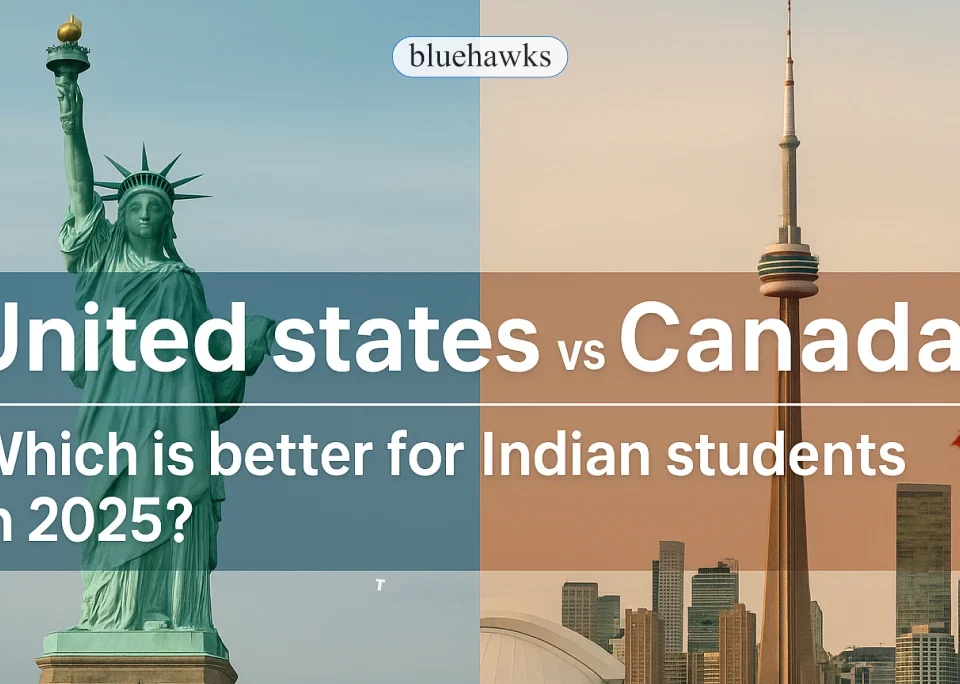How Much Money Do I Need to Live Comfortably in Canada?

How Much Money Do I Need to Live Comfortably in Canada?
Estimated reading time: 9 minutes
Canada has emerged as a preferred destination for international students, including a significant number from India. The country’s high standard of living, world-class educational institutions, and multicultural environment make it an attractive choice. However, navigating the financial landscape of living and studying in Canada can be daunting. Understanding the cost of living, from tuition fees to daily expenses, is crucial for Indian students planning to pursue their education here.
Table of contents
- How Much Money Do I Need to Live Comfortably in Canada?
- Average Cost of Living
- Factors Influencing Living Expenses
- Average Cost of Living Across Regions
- Education Expenses
- Top Courses for Indian Students in Canada
- Employment and Income Opportunities
- Healthcare System and Insurance
- Tips for Reducing Living Costs
- Tax System in Canada
- Final Thoughts
- Ready to take the next step?
- Frequently Asked Questions
While Canada offers excellent opportunities, the cost of living can vary significantly based on factors such as the city of residence and individual lifestyle choices. Major urban centers like Toronto and Vancouver are known for their higher living costs compared to smaller cities. This blog aims to provide a comprehensive guide on the financial aspects of living in Canada for Indian students. From detailed breakdowns of expenses to tips on managing costs, this guide will help you plan your budget and make informed decisions about your educational journey in Canada.
Average Cost of Living
According to recent reports, the average cost of living in Canada for Indian students is around INR 85,000 per month. However, this figure can vary depending on the city you choose to live in and your lifestyle choices. Below is a breakdown of the average monthly expenses:
| Expense | Cost (INR) |
|---|---|
| Tuition Fee | 9L – 50L per year |
| Rent in City Centre | 1L per month |
| Transportation (Monthly) | 6,000 |
| Utilities | 13,000 |
| Groceries | 21,000 |
| Avg Annual Salary (after graduation) | 34L – 37L |
Note: The figures mentioned are approximate and may vary by location and currency exchange rate.
Factors Influencing Living Expenses
Several factors can influence the living expenses in Canada for Indian students. Major expenses include transportation, groceries, utilities, and rent. These costs can vary depending on the city you choose to live in, with major cities like Toronto and Vancouver generally being more expensive than smaller cities. Additionally, your lifestyle choices can also play a role in your overall cost of living. By being mindful of your expenses and budgeting wisely, you can make the most of your time in Canada without breaking the bank.
| Expense | Cost (INR) |
|---|---|
| Transportation (Monthly Pass) | 6,000 |
| Utilities | 13,000 |
| Groceries | 21,000 |
| Rent in City Centre | 1L |
Average Cost of Living Across Regions
The cost of living in Canada can vary greatly depending on the city you choose to live in. Here is a table highlighting the average monthly expenses for a student in some major cities:
| City | Rent (1 Bedroom) | Transportation | Utilities |
|---|---|---|---|
| Toronto | INR 1.6L | INR 9,600 | INR 13,000 |
| Quebec | INR 74,500 | INR 5,656 | INR 13,000 |
| Montreal | INR 1L | INR 6,000 | INR 6,700 |
| Brampton | INR 1.2L | INR 8,000 | INR 16,000 |
| Calgary | INR 1L | INR 7,000 | INR 22,500 |
| Winnipeg | INR 77,000 | INR 6,631 | INR 13,700 |
| Belleville | INR 1L | INR 5,000 | INR 10,775 |
| Vancouver | INR 1.7L | INR 8,612 | INR 10,700 |
| Surrey | INR 1.2L | INR 9,400 | INR 14,000 |
| Mississauga | INR 1.5L | INR 8,550 | INR 14,000 |
Education Expenses
Education in Canada is highly regarded worldwide, with top-rated universities offering a range of undergraduate and graduate programs. Indian students who wish to pursue higher education in Canada often face the challenge of finding the right course and university within their budget.
Top Canadian Universities and Their Average Tuition Fees
| University | UG Tuition Fees (INR) | PG Tuition Fees (INR) |
|---|---|---|
| University of Calgary | 12L – 18L | 11L – 18L |
| University of Montreal | 15L – 20L | 13L – 20L |
| University of British Columbia | 24L – 35L | 16L – 38L |
| Simon Fraser University | 9L – 19L | 17L – 37L |
| University of Alberta | 16L – 24L | 18L – 25L |
| York University | 18L – 27L | 18L – 30L |
| McGill University | 20L – 25L | 24L – 30L |
| University of Toronto | 25L – 28L | 30L – 36L |
| University of Waterloo | 25L – 30L | 37L – 40L |
| University of Ottawa | 20L – 50L | 10L – 20L |
Note: The fees mentioned above are approximate. It may vary by course and currency exchange rate.
Top Courses for Indian Students in Canada
Canada offers a wide range of courses for Indian students. With world-renowned universities and expert faculty, Canada is an excellent option for those looking to pursue higher education. Here are the top 10 courses for Indian students in Canada:
- Computer Science and Engineering
- Business Management and Administration
- Health Sciences
- Hospitality and Tourism
- Media and Journalism
- Environmental Science
- Art and Design
- Education and Teaching
- Social Sciences and Humanities
- Information Technology
Employment and Income Opportunities
Employment and income opportunities in Canada for Indian students are abundant. According to recent reports, the unemployment rate in Canada is at an all-time low of 5.8% in 2023, which means plenty of job opportunities are available for students after graduation. Additionally, many of these jobs pay well, with the average annual salary for professionals in Canada being around INR 34L to INR 37L.
Top Professions and Their Average Salaries
| Profession | Avg Annual Salary (INR) |
|---|---|
| Marketing Manager | 42.6L |
| Financial Analyst | 42.8L |
| Data Analyst | 45L |
| Chartered Accountant | 47L |
| Human Resources | 47L |
| Civil Engineer | 50.5L |
| Mechanical Engineer | 53L |
| Registered Nurse | 60L |
| Sales Manager | 62L |
| Software Engineer | 66L |
Note: All these figures are approximate and may vary by employer and currency exchange rate.
Healthcare System and Insurance
The healthcare system in Canada is highly regarded worldwide, with a publicly funded system that provides basic medical services to all residents. Indian students studying in Canada can benefit from this system, which includes doctor visits, hospital care, and emergency services. However, it is important to note that additional healthcare costs may arise, such as prescription medications, dental care, and vision care. It is recommended that Indian students consider purchasing private health insurance to cover these additional costs.
Health Insurance Options
Indian students in Canada can choose from various health insurance options, including private and provincial health insurance plans. Some popular private insurance providers for international students include Guard.me, Manulife, and Sun Life Financial. The provincial health insurance plan, or OHIP, is available to students who have lived in Ontario for at least 12 months.
Healthcare Benefits for Indian Students
As an international student from India, you may also be eligible for certain healthcare benefits during your stay in Canada:
- Basic Healthcare Coverage: Includes doctor visits, hospital stays, and emergency care.
- Prescription Drug Coverage: Helps save money on essential medications.
- Mental Health Services: Includes counselling and therapy.
- Dental Care: Covered under many private health insurance plans.
- Vision Care: Includes eye exams, glasses, and contact lenses.
- Alternative Therapies: Such as acupuncture, chiropractic care, and massage therapy.
Tips for Reducing Living Costs
Studying abroad can be an exciting and enriching experience, but it can also be expensive. However, there are several ways to reduce the cost of living and make the most of your time in Canada without breaking the bank. Here are some tips to help you save money and live comfortably while studying in Canada:
Accommodation
- Consider shared accommodation or homestays to split rent costs.
- Explore off-campus housing options, which may be more affordable than on-campus residences.
Cooking at Home
- Cook meals at home instead of dining out regularly.
- Plan and prepare meals in batches to save time and money.
Transportation
- Use public transportation options like buses and trains to cut commuting costs.
- Consider walking or cycling for short distances to save on transportation expenses.
Budgeting
- Create a monthly budget to track expenses and identify areas to cut costs.
- Prioritise essential expenses and allocate funds accordingly.
Health Insurance
- Compare and choose a cost-effective health insurance plan that meets your needs.
- Understand the coverage details to avoid unnecessary expenses.
Networking for Shared Expenses
- Connect with fellow students for shared groceries, transportation, and group activities expenses.
- Collaborate on purchasing items in bulk to save collectively.
Implementing these tips can significantly contribute to reducing the overall cost of living for Indian students in Canada.
Tax System in Canada
The tax system in Canada can be quite different from what Indian students are used to. In Canada, taxes are deducted from your income automatically, and you may be eligible for certain tax credits and deductions. Understanding your tax obligations as an international student in Canada is important, as failing to file your taxes correctly can result in penalties and fines.
Tax Filing Requirements
Indian students studying in Canada may be required to pay Canadian income tax on their earnings. It is also necessary to report any income earned outside Canada for tax purposes if your income is INR 30L or more. The initial tax rate for the first income of INR 30L is 15%.
Documents Needed to File Taxes
- Social Insurance Number (SIN) or Individual Tax Number (ITN)
- Application for a Canada Revenue Agency Individual Tax Number (ITN) for Non-Residents
- T2202 showing your tuition fees paid for the tax year
- T4 form from your employer, which includes your employment earnings and deductions.
- T4A slip if you received a scholarship or bursary.
- Interest tax slips from financial institutions (if applicable)
- Receipts for donations made to Canadian charities
- Medical receipts
The Canadian government provides support to help you navigate the tax system, so take advantage of these resources to ensure you stay compliant with Canadian tax laws.
Final Thoughts
While the cost of living in Canada for Indian students can vary depending on several factors, it remains an excellent place to pursue higher education. With world-class universities, abundant employment opportunities, and a high standard of living, Canada has much to offer Indian students. By budgeting wisely and taking advantage of various cost-saving measures, you can make your stay in Canada both affordable and enjoyable.
Ready to take the next step?
At bluehawks, we understand that navigating the complexities of international education can be overwhelming. That’s why our expert team is here to support you every step of the way.
From personalized consultations to comprehensive test preparation resources, we offer a range of services designed to help you achieve your academic goals. Whether you’re facing challenges with language proficiency or need guidance on selecting the right university, our team is dedicated to providing you with invaluable advice and assistance.
Don’t let language barriers or financial concerns hold you back from pursuing your dreams. Contact bluehawks today and let us help you chart your course to a brighter, more fulfilling future. Together, we can turn your aspirations of studying in the Canada into a reality!
Frequently Asked Questions
The average cost of living for an Indian student in Canada is around INR 85,000 per month. This includes accommodation, transportation, groceries, utilities, and other daily expenses. However, costs can vary significantly depending on the city and lifestyle choices.
Tuition fees for Indian students in Canada can range from INR 9 lakh to INR 50 lakh per year, depending on the university and the program. Undergraduate programs typically have lower fees compared to postgraduate programs.
Rental costs can vary widely across Canadian cities. For example, the average rent for a one-bedroom apartment in Toronto is around INR 1.6 lakh per month, while in Quebec, it is approximately INR 74,500 per month.



